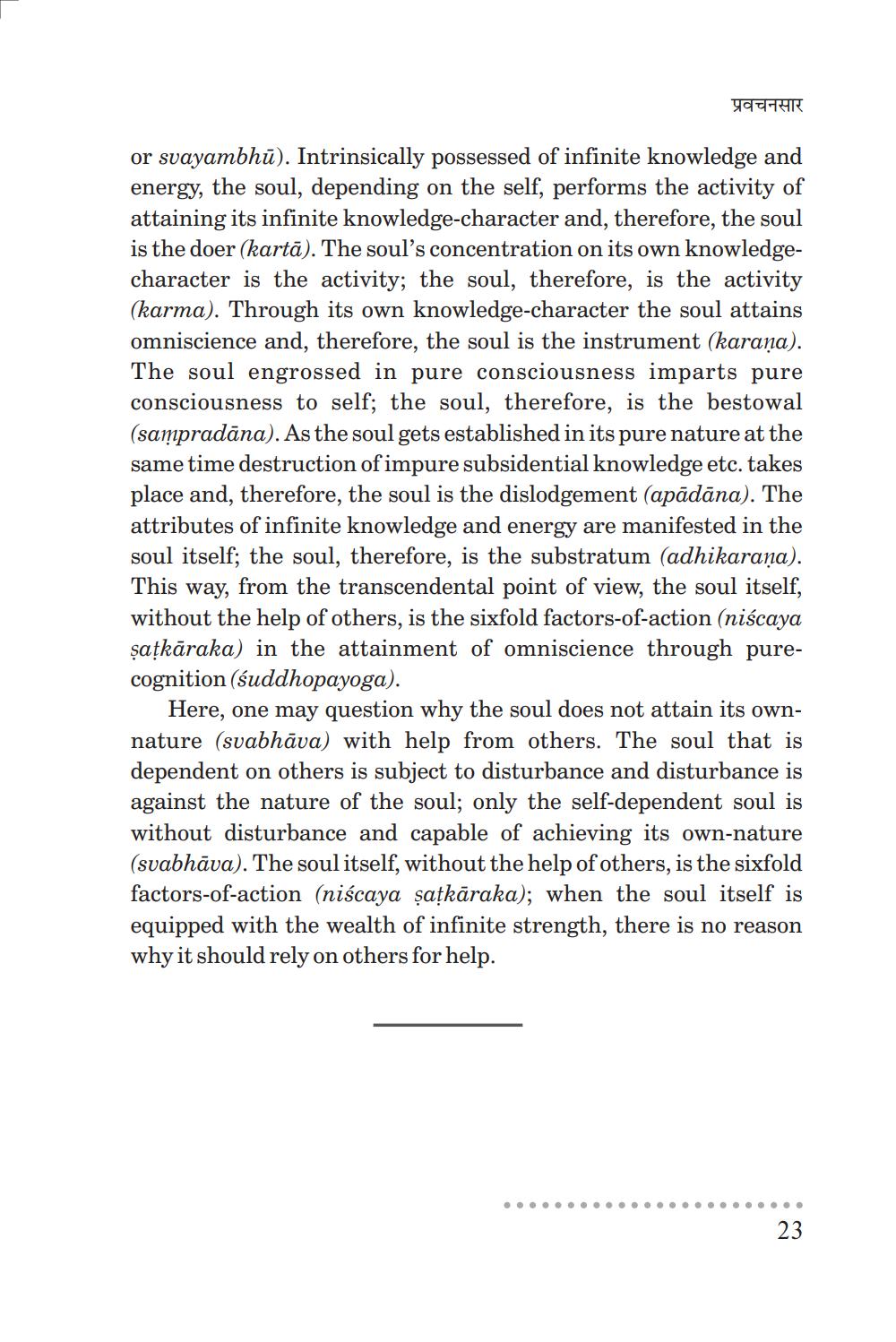________________
प्रवचनसार
or svayambhū). Intrinsically possessed of infinite knowledge and energy, the soul, depending on the self, performs the activity of attaining its infinite knowledge-character and, therefore, the soul is the doer (kartā). The soul's concentration on its own knowledgecharacter is the activity; the soul, therefore, is the activity (karma). Through its own knowledge-character the soul attains omniscience and, therefore, the soul is the instrument (karaṇa). The soul engrossed in pure consciousness imparts pure consciousness to self; the soul, therefore, is the bestowal (sampradāna). As the soul gets established in its pure nature at the same time destruction of impure subsidential knowledge etc. takes place and, therefore, the soul is the dislodgement (apādāna). The attributes of infinite knowledge and energy are manifested in the soul itself; the soul, therefore, is the substratum (adhikaraṇa). This way, from the transcendental point of view, the soul itself, without the help of others, is the sixfold factors-of-action (niscaya șațkāraka) in the attainment of omniscience through purecognition (suddhopayoga).
Here, one may question why the soul does not attain its ownnature (svabhāva) with help from others. The soul that is dependent on others is subject to disturbance and disturbance is against the nature of the soul; only the self-dependent soul is without disturbance and capable of achieving its own-nature (svabhāva). The soul itself, without the help of others, is the sixfold factors-of-action (niscaya şaļkāraka); when the soul itself is equipped with the wealth of infinite strength, there is no reason why it should rely on others for help.
........................




